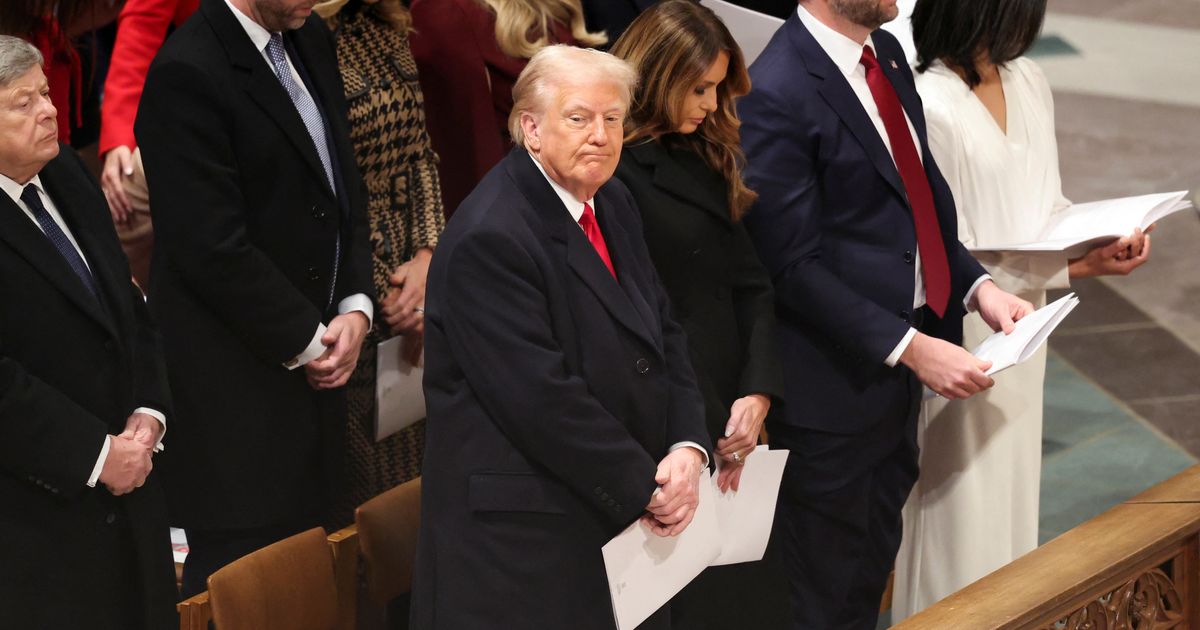Divine Tensions: Trump's Uneasy Moment at the National Prayer Service

Donald Trump's relationship with religion is complex and strategic, revealing a perspective that values spiritual rhetoric only when it aligns with his personal agenda. While he frequently invokes God and religious imagery, his interpretation seems deeply transactional—embracing faith primarily when it reinforces his political narrative and demands unquestioning loyalty.
Trump's religious discourse appears less about genuine spiritual conviction and more about wielding religious sentiment as a political tool. He champions religious freedom and conservative Christian values, but only insofar as they serve his immediate interests. When religious leaders or institutions challenge his viewpoints or advocate for more inclusive, progressive interpretations, he swiftly dismisses them as "woke" or out of touch.
This approach demonstrates a calculated use of religious symbolism, where divine endorsement is sought not through genuine moral reflection, but through a lens of absolute compliance. Religious support is welcomed, but only if it comes with unwavering allegiance to Trump's vision and narrative. Any deviation or independent moral stance is quickly reframed as opposition, revealing a fundamentally transactional understanding of faith that prioritizes personal power over spiritual principles.
Ultimately, Trump's religious rhetoric reflects a broader political strategy: leveraging spiritual language to mobilize support while maintaining strict control over its interpretation and application.

